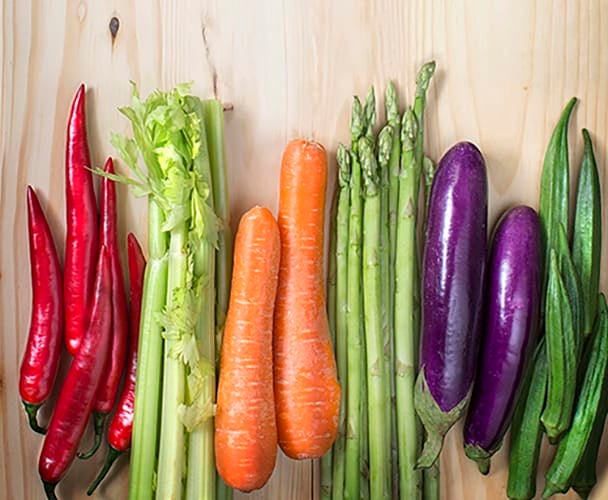
What makes organic crops different from conventional crops? Is one worth more or better for you? Here’s help in addressing these and other questions you may get about organic foods.
Q: How are organic crops different from nonorganic (conventional)?
A: USDA-certified organic crops cannot use synthetic fertilizers, pesticides or genetically modified organisms (GMOs). Typically, livestock manure and compost are used to improve organic soil quality. Both organic and nonorganic production can utilize crop rotation, cover crops, burning, tillage and mulch for nonchemical weed control.
Q: Can animal products be labeled organic?
A: Yes, if they meet USDA regulations, including outdoor access by the animals to certified-organic fields, 100 percent organic feed and no antibiotics or growth hormones.
Q: Do organic and natural mean the same thing?
A: No. USDA classifies natural as a product that contains no artificial ingredient or added color and is only minimally processed.
Q: Is organic food more nutritious or safer?
A: This answer is not clear-cut. According to health experts at the Mayo Clinic, there is growing evidence of potential health benefits of organic foods, including:
- Small to moderate increases in nutrients such as flavonoids.
- Lower detectable levels of pesticide residue. Safety regulations also keep residue levels low in conventional products, making it difficult to detect differences in health outcomes.
- Higher omega-3 fatty acids (the heart-healthy ones) in organic animal products. This could be due to more grass in the animals’ diets. Meanwhile, the overall risk of bacterial contamination of organic foods is the same as conventional, according to Mayo Clinic experts.
Q: What about the cost comparison?
A: Organic foods typically cost more. Farming practices may require more hand labor, less mechanization and sometimes lower yields. Organic products are often processed and transported in smaller quantities, increasing the cost per unit.
Learn more about the future of American food production, including organic and conventional farming practices, with the FFA #SpeakAg Dialogue videos on FFA.org.











